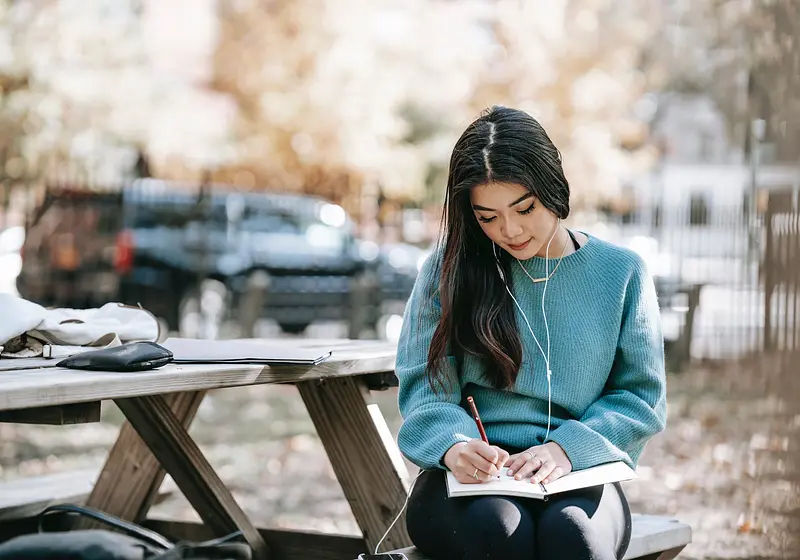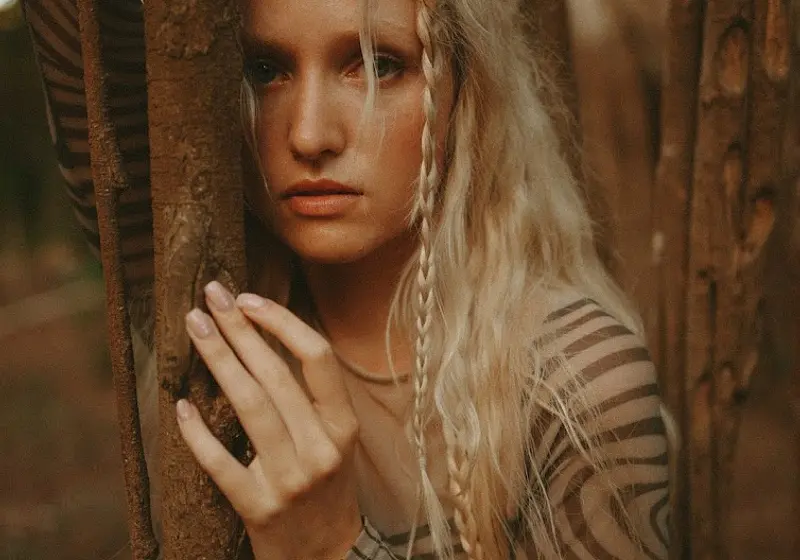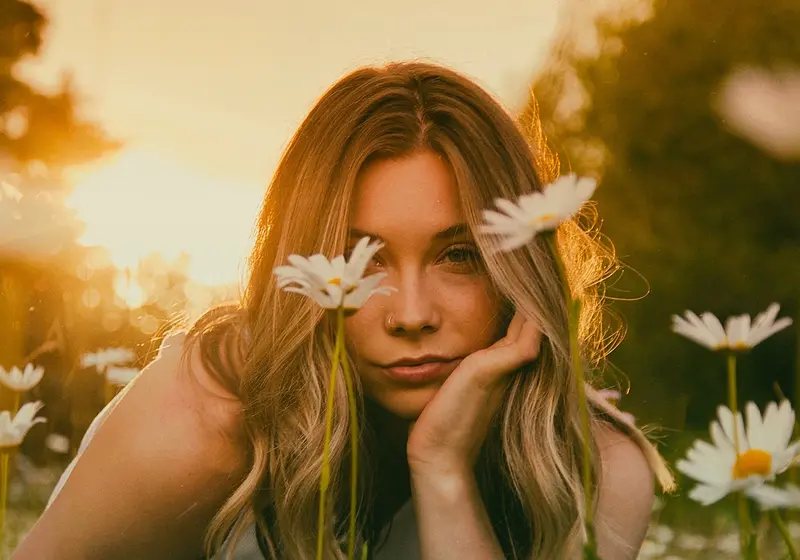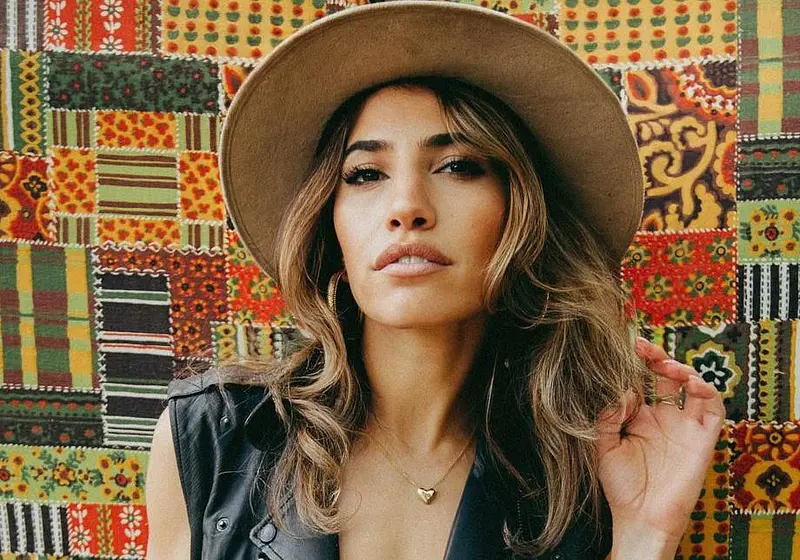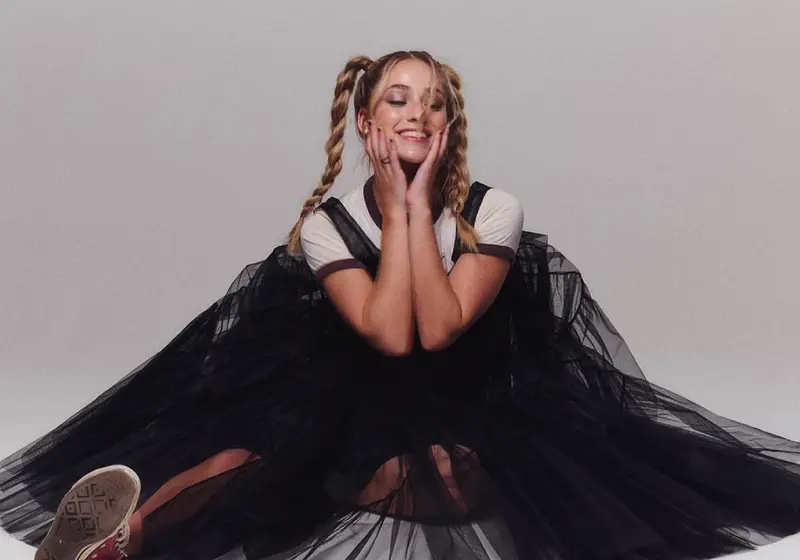Getting to the core of creativity requires you to be in tune with your feelings. Pun aside, songwriting is the next hobby for you to level up your creative projects in 2024!
As an audible art form, creating music gives you the power to uniquely intertwine the body and soul. This explains why hearing a song that hinges your emotional rhythm may elicit a dance or compel you to sing along. A research journal from Frontier suggests that this is because music relates to our emotional, kinetic and spatial patterns of cognition, which allows it to carry meaning and thus foster a feeling of connection. As it is in our human nature to seek connection, songwriting can be used as a dynamic medium to indulge that demand. This is honoured by Mitski as she essentially shares how she values connecting with her audience through her songs in the Instagram post below:
From one glance at a music textbook, a beginner might fall for the myth that one needs to emulate Mozart to create music– but that is simply not true. Unfortunately, this preconception hinders most music lovers from becoming new songwriters who'd rise to rock our world. In this article, I will discuss why you shouldn’t fret about going into songwriting as a beginner, as you can ease into it by relying on your intuition and having the courage to be playful. So, ready or not, it's time to face the music!
Let us slide into your dms 🥰
Get notified of top trending articles like this one every week! (we won't spam you)The Beginning
One day, when I was 7, I came home from school with my very first song. My mom had picked me up that afternoon, and as per routine, the car brimmed with the biggest hit songs of the 2000s all the way home. At this age, I was developing a more conscious curiosity about the world around me, but I was especially drawn to the creation of music.
Once I heard that Taylor Swift had written her first song when she was 12, the idea of songwriting had stuck on the back of my mind. But I didn’t know a thing about music, I just knew I liked to sing.
To pass the time stuck in traffic, I decided to doodle. This is a habit that pronounced my instinct to seek refuge in my imagination. Added with my previously simpler understanding about the world, I still had the untainted belief that I could do anything.
So when I languidly shifted my focus to the music on the radio, perhaps it had coincided with some kind of butterfly effect as it dawned on me that each song was intrinsically unique. To me, it meant that if I could just come up with something different, I would be bringing something to the table. In that moment, I was stirred by the idea that I might have some chance at yielding the power of music that had always captivated me before.
So I followed my heart, humming a tune that I believed was new while stubbornly discarding any musical patterns I’d heard before. When my mom realised what I was doing, she turned the radio off to let me concentrate better on my craft, which gave me more freedom to vocally experiment with sounds. Before I realised it, I was constructing a new musical arrangement that I would be able to claim as my own. I was making my first original song. Therefore, my experience with listening to music and the freedom I had to experiment enabled me to produce my own music solely through intuition.
Then, I had to construct the narrative that would be told through my song. As I was more simple-minded back then, I didn’t struggle so much in finding the words to describe my feelings, and reconstructing them into fitted lyrics that matched the melody I created. What came out of it in the end was a naive little love song that, of course, wasn’t particularly Grammy worthy (hear it for yourself– if you're prepared to cringe). But it marked the beginning of my songwriting journey, where I first found my original voice.

This anecdote demonstrates that songwriting doesn’t discriminate based on your level of experience. As a merely casual music enjoyer, you might be ‘blind’ to the theoretical or technical aspects of music, but you undoubtedly have intuition. Once you give into your intuition, you can start creating music based on your own sense of what sounds right.
Moreover, songwriting could become second nature once you realise that music is everywhere all the time. Babies enter the world crying at a high pitch, signifying their pure astonishment by life. Your throat releases a low hum as you sigh from frustration. You could even find music in the roaring waves at the beach or the clicking of pens in a classroom. Can you hear it now?
Even without a formal music background, you have to realise that you already possess the inherent ability to create music. That is how you begin as a beginner.

Take the Quiz: Which BLACKPINK member are you?
Find out which BLACKPINK member you resemble the most!
Ride the Bike
Familiarising yourself with your creative intuition may take some practice. To extract from my early experience with songwriting, my simple formula was habitually keeping myself present in my imagination and entertaining the idea that I could do anything. However, it is fair to argue that the fluidity of this mindset may disintegrate as we grow older.
As gaining more knowledge primes us to be more critical of the world and of ourselves, it could feel as though we’re losing touch with our creativity. But our relationship with creativity is ultimately a malleable construct, it’s just like getting back on the bike! With that being said, here are two actionable ways to harness your inner songwriter:
- Listen
- Practice

Perhaps you consider yourself an avid listener of music; your earphones are perpetually plugged in, and you might even have the impressive ability to recite an entire discography or two. But when you listen to a song, are you paying attention to the flow between its verse and chorus? Can you find the components that form the rhythm it embodies in your interpretation?
Listening to music in general can passively train your musical ear and help enrich your sense of intuition, but you can maximise these benefits by being more perceptive to what makes a song how it sounds and by drawing inspiration from it to incorporate to your own craft.
Then, pick up an instrument! If you're relatively new to music practice, I'd recommend starting with popular songs that are easy to play because the motivation you'll gain from approaching something exciting and non-intimidating will actually help you learn more. You'd be surprised at how many fun, well-known songs appear when you search up “easy guitar songs”; even Ed Sheeran testified that most pop songs ultimately recycle only four basic chords. He proved this during an RTL Talkshow, when he showed off his impressive ability to sing and play “every song in the pop charts". This applies to any instrument: you won't do yourself any good if you overwhelm yourself with something too advanced as a starting point. Remember that everyone starts somewhere, and just because you're starting easy doesn't mean you aren't starting strong. You don't necessarily need a formal music tuition to gain experience, you can just start now and take advantage of the materials posted for free online. Embrace the digital age we live in!
You'll eventually gain the confidence and ability to branch out to more complex songs, but the best strategy is to evolve incrementally. When you get a picture of how songs are structured and familiarise yourself with chord progressions, this will serve as the basic foundation to grow your songwriting skills. However, with that being said, songwriting is not a competition based on using the most challenging chords or producing the most complex arrangement – it's just about doing what feels right.
Nevertheless, listening and practicing will allow you to form a deeper bond with music and develop a more nuanced appreciation for it. Spending more meaningful quality time with music surely isn't a chore to us music lovers!
It Just Happens
In the Genius interview where Mitski talks about her latest hit song, “My Love Mine All Mine”, she revealed that she came up with the iconic chorus while walking home with groceries one day. Apparently, she likes to make up songs whenever she wants to “dissociate from the moment”; and honestly, she’s so real for that! I obviously can’t commend the dissociation, but Mitski does raise the interesting idea of songwriting during the mundane moments of life.
Adopting the habit of making up songs during any point of your regular day increases your courage to be playful, which creates a positive feedback loop that will continually generate creativity. Then, try not to be too judgmental of whatever that comes to you as the more you embrace these ideas, the more likely you’ll be able to create something out of it.
Writing a song is a liberal process; there are no rules to it. A song could unexpectedly come from a piece of writing that you had originally intended as a poem. Or, it could surprise you in the shower during one of your random singing sessions. Perhaps from fiddling with your instrument, you might come across a tune that hits the spot. You might even find that the verse could come first on some days, but the chorus might beat it on others. The process could be different every time, but it can only ever start when you keep yourself open to it.
In 2019, Conan Gray uploaded a YouTube tutorial on songwriting in which he mainly expresses that writing a song “just happens”. Without realising it, people so often make up random jingles about anything; like today, when my friend dramatically sang about needing coffee as we came out of a lecture. Subsequently, note that these idle little songs we sing to be playful could be elevated into more coherent musical pieces if we just took the extra steps.
When you've optimally trained your music listening and practicing skills, the process will flow intuitively. But if it still doesn't feel right, practice with more pre-existing songs that match the original song idea in your mind and take notes on what appeals to you– then incorporate them into your own craft!

Further Songwriting Tips
- MuseScore is a free music composition and notation software that helps you create music with digital instruments. The software makes it easier to practice your notating skills and wrap your head around the technical side of music, so you can experiment while studying some music theory on the side.
- GarageBand is a software application created by Apple that practically turns your device into a recording studio! With this app, there's no need to go through the pain of finding a recording studio in real life. This is the best way to independently produce more fleshed out demos you could distribute to music producers or export straight to Spotify.
There are a lot more digital softwares out there, but you can also take it casually. Personally, I like to sit in my bed with my guitar, write the lyrics and chords on a notebook, and record my songs on Voice Memos. Then, if I feel good about a song, I like to share it.
I believe that sharing your art with the world adds meaning to life, and that you don't necessarily need to aim for fame in order to leave a mark. What I do is I simply film myself performing my songs on Photo Booth and upload them on YouTube for my friends' and family's entertainment. One time, I even brought my guitar to a formal family dinner and performed a song I wrote for my grandpa on his birthday.
As songwriting is just a hobby for me, I don't feel compelled to invest much in it. But if you find you have a stronger passion for it along the way, then by all means, make that investment! Learn from a songwriting mentor, connect with music producers/directors on LinkedIn and work with high quality recording equipment. Put yourself out there, and let your unique sound be heard.
Happy songwriting!





